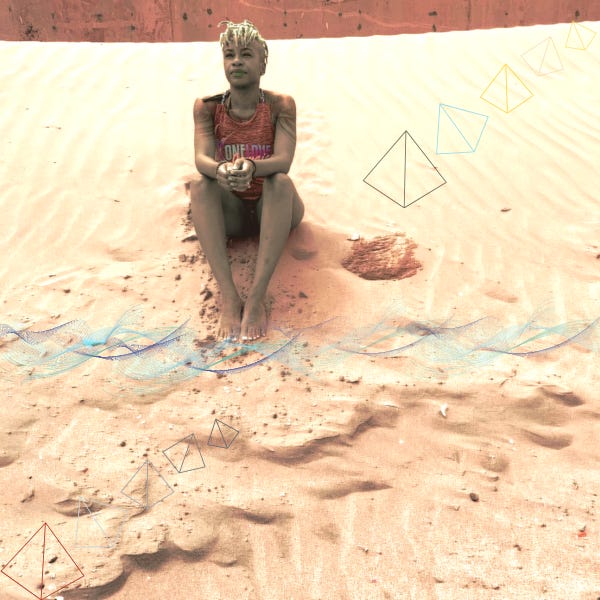Part Archivist, Part Futurist.
Setting out to get all up in the details of cultural gazes and personal archiving.
I am writing this book for those of us who feel like our bodies and needs span nations and sometimes continents. I intend to amplify the experiences of some of us brought to America by our parents’ or caregivers’ visions, dreams, and needs for a brighter tomorrow. People whose families fled strife in their home countries and moved their children to America, and we (their children) later discover a deep sense of fragmenting and a growing inquiry around our expanding roots.
This book uses stories and essays for out-loud contemplating on the ways that we find ourselves needing to determine the aspects of our roots, our origin culture that are still aligned with who we've become, and which parts we must shed and even let die. But not die as in be forgotten or disregarded; dead but remembered as relevant parts of our history. Parts of us that oftentimes strengthened our survivalist alchemy, and embedded themselves in parts of our elders in ways that carried over to us.
We find ourselves as part archivists, part futurists. We find that we must engage ourselves in the archiving of the old things, and for some of us, it is through raising new things (children) that this process begins to feel like a responsibility to take on with courage and consistency.
We are recognizing that elements of what we grew up with are now actually artifacts, not tools we want to carry with us in our present or bring into our future through relationships with children. We are feeling into aspects of our relationships to food, music, language, and appearance that we want to encase, so as to grow to understand them as separate from us, even though they come from the origins of us.
What is my relationship to the community gaze?
And what is the relationship between the community gaze and the White gaze?
How will I live and parent in alignment with what I find out when I question these things?
…and for some of us - How will I parent in alignment with what I find out when I question these things?
These are the elements of my ongoing madd question askin’ practice that offer me direction to move towards, and caution about what to be critical of, or move away from completely. These are stories about questioning whether my family is destined to always be on the outskirts. Questioning whether we come off like a scary black bear on one side, in terms of the White/Western gaze, but then come off like a fast-spreading wild weed in our home culture and community with our foreign ideas.
That's the examination here--those cultural gazes and how we wrestle with our commitment to liberation when we are both black bear and wild weed. My hope is that these stories encourage other diasporic Africans in particular to do the work of distinguishing between artifacts and their present-day tools and toys.



the word artifact really came through heavy and the MQA leading you to the paradox of Black Bear + Wild Weed! excited to be with you along this journey to the next book!